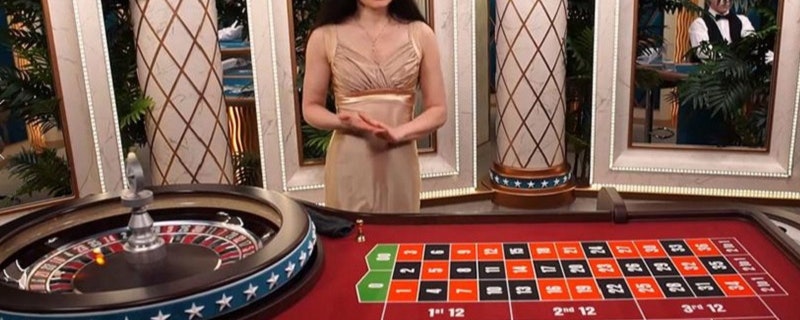Online Roulette Systems – Do They Really Work?
Published: thu 7 nov 2019 | Updated: wed 30 sep 2020Is it Possible to Beat?
Every spin of a properly balanced roulette wheel in a fair and honest casino is an independent random event, which means that neither players nor the house staff have any idea which number will come up next. Despite that fairly obvious fact, over the decades a significant number of roulette enthusiasts have developed a range of staking plans and betting systems in an effort to help them beat the house both offline and when playing the game online. But how valuable are such systems, and do they really work?Theory vs Practicality
The question of whether or not online roulette systems work isn’t an easy one to answer, because any answer will depend on what is meant by “work” as well as on whether you are talking theoretically or practically. Beginning with the first of those elements, if the definition of a working system is one that can reliably predict the outcome of a future spin of the wheel, the answer is a definite no. However, if the definition of a working system is one that can guarantee a profit over the long term, the answer is a less confident “maybe”.That “maybe” might sound ambiguous, but that’s because it is dependent on whether we are talking about theory or practice. If we are talking theoretically then there are staking strategies which can guarantee a profit at the roulette table. Unfortunately, casinos are very aware of that, and have their own systems in place to prevent players from being able to make the best use of them.We have just made two fairly big claims, so we will now provide you with evidence that proves both of them quite convincingly.
A Guaranteed Roulette System
The Martingale System is one of the best know roulette systems in the world, and it has a reputation for being the most foolproof way of guaranteeing profits at any fair roulette wheel.The system is simple: Begin by betting one unit (such as $1, €1 or £1) on your chosen even-money option, such as the next winning number being black, red, even or odd. If your bet loses, double your stake and bet again on the same outcome. If your bet loses again, simply double your stake again, and keep doubling up in this manner until your selected outcome occurs.
When your selected outcome wins, your bet will pay out at odds of 1:1, which will be enough to recover all of your previous losses in the series, and leave you with one unit left over as profit. For example, if you bet on a red number appearing and you place three losing bets before winning on the fourth bet, the numbers would work out like this:
- $1 + $2 + $4 + $8 = $15 staked in total
- $8 bet wins at odds of 1:1 = $16 returned to you
- $16 - $15 staked = $1 profit
The mathematics of this system work no matter how many bets you have to place before hitting a winner, so you are guaranteed a one unit profit every time your selection occurs. This makes the Martingale System a proven winner – in theory.
The Bad News
Unfortunately, using the Martingale System in practice is much more challenging than it first appears, for two main reasons.First, this system demands that you have a bankroll which is big enough to fund long losing streaks. Because stakes have to be doubled after every loser, a lengthy losing sequence will see stakes escalate quickly. For example, if you start betting with just $1 and you suffer eight losing selections in a row, you would have lost a total of $255 and the required stake on the ninth selection would be $256. Lose that and your next stake would be $512, then $1,024, and so on. Carry on doubling up like that and you would be required to place a bet of just over $1 million after a sequence of 20 losing bets – and then have enough to keep doubling up if the sequence continued.
Second, both offline and online casinos set strict table limits which make it impossible for you to double up beyond a certain point. This effectively renders the Martingale and similar systems useless, because if you have to get a winner before reaching the maximum stake limit, you aren’t guaranteed to succeed. And even if you do, you will only win as much as your first stake – in our example a paltry $1.
Conclusion
Roulette is a game of chance, and no attempt to beat the wheel will ever be as reliable or practical as players would want. If such systems really worked in the real world, casinos would have gone out of business a long time ago, so play the game for fun rather than profit, and avoid such risky staking progressions like the plague!Play Online Roulette atLeoVegas
Licensed & Verified
19+ | T&Cs apply | Play Responsible | This offer is not available for players residing in Ontario
Casino of the Month
19+ | T&Cs apply | Play Responsible | This offer is not available for players residing in Ontario
Popular casinos
19+ | T&Cs apply | Play Responsible | This offer is not available for players residing in Ontario
19+ | T&Cs apply | Play Responsible | This offer is not available for players residing in Ontario
19+ | T&Cs apply | Play Responsible | This offer is not available for players residing in Ontario
19+ | T&Cs apply | Play Responsible | This offer is not available for players residing in Ontario
19+ | T&Cs apply | Play Responsible | This offer is not available for players residing in Ontario



















